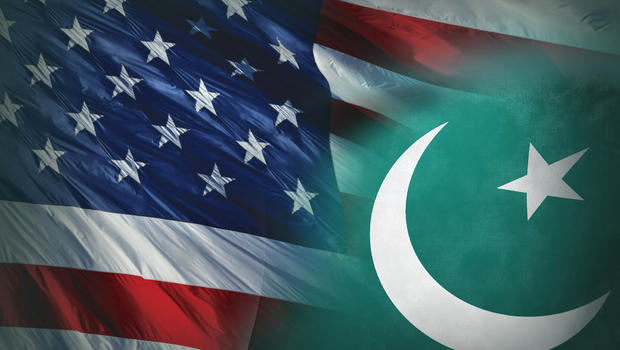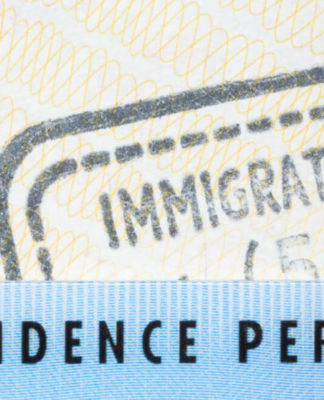It seems that the United States has now started to take gradual measures against Pakistan and freezing security-related funds to Islamabad is the last step taken in this respect until now.
State Department Spokesperson Heather Nauert lately announced at a press briefing that the Trump administration was suspending all security assistance to Pakistan because the country was not taking a tougher stance against terror networks on its territory and the funding would remain cut-off as long as decisive action was not taken against Haqqani Network and Afghan Taliban. The aid package which was to be given in security assistance amounts to more than USD1.15 billion, according to some sources. Earlier, USD255 million of the Coalition Support Fund money was suspended.
As a new move, the US has placed Pakistan on a special watch list for “severe violations” of religious freedom. The US annually designates ‘countries of particular concern’ and the State Department said it had re-designated Burma, China, Eritrea, Iran, North Korea, Sudan, Saudi Arabia, Tajikistan, Turkmenistan and Uzbekistan as “countries of particular concern” under the International Religious Freedom Act of 1998 for having engaged in or tolerated egregious violations of religious freedom.
.
The US President, in a surprise New Year tweet, said: “The United States has foolishly given Pakistan more than 33 billion dollars in aid over the last 15 years, and they have given us nothing but lies & deceit, thinking of our leaders as fools.” He further said: “They give safe haven to the terrorists we hunt in Afghanistan, with little help. No more!”
Though there are some new words in whatever Donald Trump has said in this tweet, but in general he has already made such allegations against Pakistan when, during his first address, he unveiled the new strategy for the South Asia aimed at bolstering American security.
It appears that America is steadily moving forward on its decided plan against Pakistan. The main question is how far the US will go against Pakistan. Before reviewing different aspects in this connection, it seems appropriate to point to the statement of the Minister of Defence Khurram Dastgir Khan which he himself said on January 4, 2018 while speaking to the media in the Parliament House that the possibility of the US action inside Pakistan could not be ruled out, however, the country is ready for any such eventuality.
Various analysts are expressing their views on what measures the US can take against Pakistan. However, according to what Washington has stated itself, it intends to resort to new military intervention inside Pakistan. This intervention may take place in the form of more drone strikes as the United States has already make it known. One question about this is whether these drone strikes will be limited to tribal areas or may also expand to settled areas of Pakistan.
As a record, it can be said that the US has already launched drone strikes inside non-tribal areas of Pakistan. Thus, in addition to Khyber Pakhtunkhwa, several such attacks have been carried out in Balochistan as well. A drone strike also took place in Noshki district of Balochistan in May 2016 in which Taliban chief Mullah Akhtar Mansour was killed. Pakistan then summoned the US Ambassador to Islamabad to lodge a protest against this attack.
Pakistan has lodged protest several times with the US over drone strikes. According to Pakistan, these strikes violate country’s sovereignty and territorial integrity as well as being against the UN Charter, which safeguards territorial sovereignty of all member countries.
Pakistani foreign office also summoned the US ambassador to lodge strong protest against US President Donald Trump’s 1 January tweet. It is very rare to summon the US ambassador to Foreign Office to protest about any issue.
Will America’s response against Pakistan be limited to drone attacks or it can also take other measures too. Members of the Senate Standing Committee on Foreign Affairs recently voiced concerns that the United States may conduct a unilateral action against Jamaatud Dawa (JuD) chief Hafiz Saeed like the one it carried out against al-Qaeda chief Osama bin Laden in Abbottabad. It is worth mentioning that the US had placed a USD25 million bounty on the head of bin Laden’s while it has offered a USD10 million bounty for Hafiz Mohammad Saeed. Some observers believe that Pakistan’s financial regulatory body decision banning Jamaatud Dawa from collecting donations is aimed at satisfying the United States.
Apart from this, the US can also impose new economic sanctions on Pakistan, and according to a news report Washington has also banned the supply of military equipments to Islamabad, whereas Pakistan is more reliant on the US for providing it the repair parts and renovating its weapons.
Under the patronage of the US, India can also resort to some kind of a blatant act of belligerence against Pakistan. In this regard, India’s political and military leadership have on several occasions threatened Pakistan. India made headlines in late September in 2016 claiming it carried out “surgical strikes” on militants across the LOC in Azad Kashmir. New Delhi has also warned to carry out such strikes in future. Though, Pakistan has denied that India made any surgical strikes against it in the past. However, any such action on the part of India can’t be ruled out in the future. Some military analysts even say that India will not hesitate to also take measures larger than this and it is certain that the US backing will be with it in such a scenario.
Pakistan’s North-Western border also looks more unprotected than ever where on the other side of it in Afghanistan the influence of ISIS is ever growing. The United States has been executing its plans in the Middle East with the help of ISIS and other terrorist groups. It looks like that the US, in light of its experiences, has decided to work with terrorist groups to accomplish its objectives rather than maintaining its military’s large presence or Nato forces. This method of working is cheap as well as suitable under the circumstances because all these terrorists claim that they are Muslims and are fighting to re-establish the Islamic caliphate. By this way Muslims are apparently fighting each other in this war and the United States is playing its role in the name of eradicating terrorism.
What options does Pakistan have in this situation and how can it prevent Washington from executing its aggressive plans? So far many things have come to fore in this regard. (To be continued)































